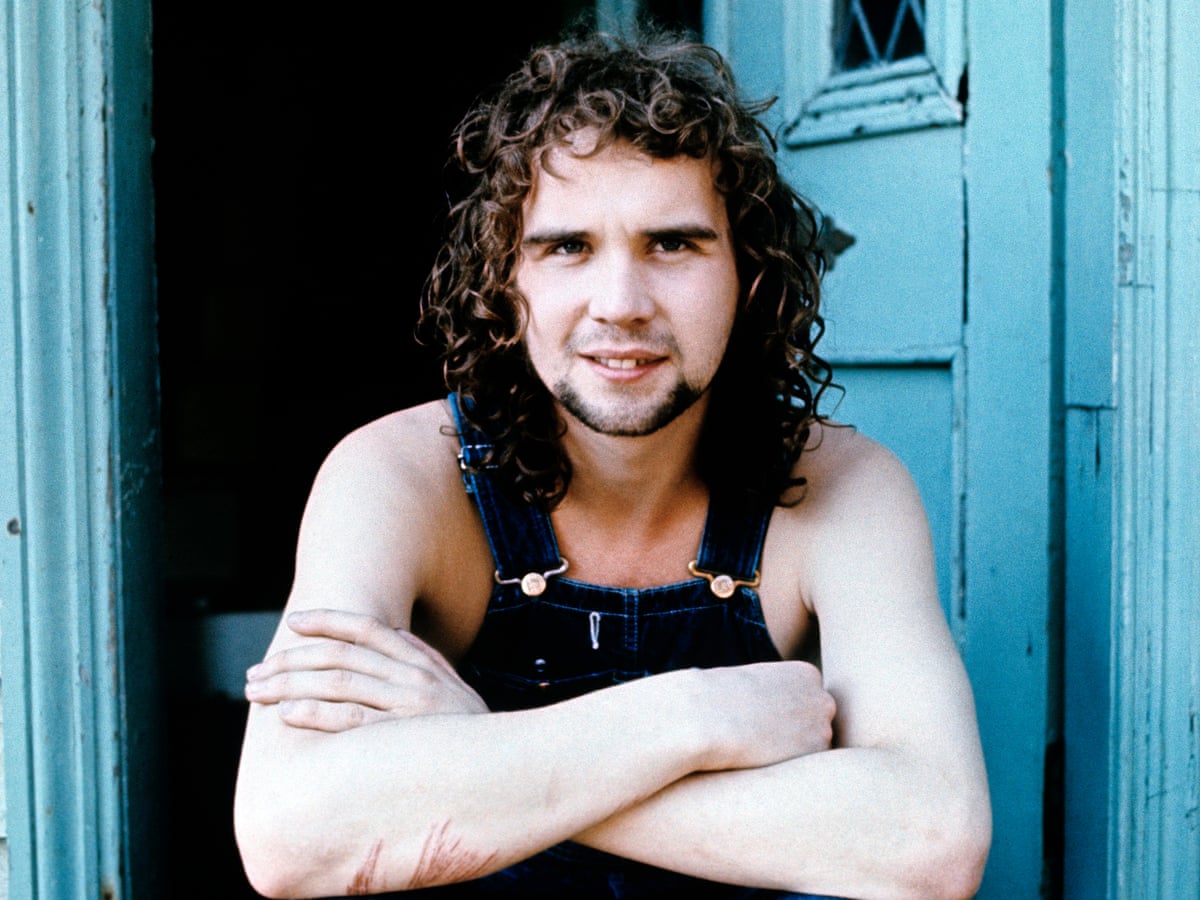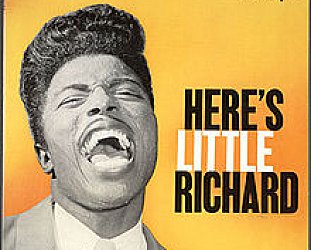Graham Reid | | 3 min read
I'd Rather Be the Devil (album version)

When the great British singer-songwriter John Martyn died in January 2009 there was initially very little media coverage -- and then people realised the significance of this innovative and creative artist whose work had rapidly outgrown its folk origins in the late Sixties.
Martyn's life was undeniably messy: he was self-destructive, addicted to alcohol and drugs, depressive, erratic and in 2003 had a leg amputated.
But his music up until the early Eighties was extraordinary.
He was a virtuoso guitarist and highly expressive singer, and was as interested in new technology for the guitar and recording studio as he was grounded in British folk and the blues.
He, like Tim Buckley, naturally assimilated jazz improvisation and earthy blues into the folk-rock context, and Martyn created a string of albums that were unlike anything which had come before him.
His decline perhaps started when he split with his wife Beverley -- although out of that he created one of the great dark albums in rock culture, Grace and Danger of 1980. After that the returns diminished somewhat.
But in the decade prior to that he was showering his gifts over remarkable albums, none more fully realised than Solid Air in '73.
The title track was written in tribute to his fragile friend Nick Drake (who died 18 months later) and his lovely song of brotherly affection between men May You Never was lifted by Eric Clapton. But the album was also a sonic journey as he indulged his discovery of delays and echo pedals, and effortlessly placed acoustic instruments alongside electric instruments (guitar, piano) and effects.
 You'd be hard pressed to know which record store bin -- folk, rock, jazz, blues -- to put it in: maybe "file under genius" isn't a category yet.
You'd be hard pressed to know which record store bin -- folk, rock, jazz, blues -- to put it in: maybe "file under genius" isn't a category yet.
The title track opener, a dreamlike piece, seems to come at you from afar as Martyn sings almost wordless vocals from an echoed distance and the acoustic bass is in the foreground. It immediately establishes that this is one very different album and that his voice (sometimes singing indecipherable words) is actually just another instrument in the sonic texture.
Elsewhere he extends Skip James' blues I'd Rather be The Devil into a six minute, unsettling landscape of sudden guitar stabs over an urgently hammering beat. The whole thing exists somewhere between blues and the soundtrack to a disturbing dream.
But he could also celebrate life, notably on his song Over the Hill about the joy of returning to his home after touring and the excesses it offered.
With musical assistance from the likes of Richard Thompson on mandolin, bassists Danny Thompson and Dave Pegg, Rabbit Bundrick on electric piano and drummer Dave Mattacks, the album was mostly recorded in a fortnight, which might explain its clarity of focus and intensity.
Recognised on release as a classic album (in a year that offered records as diverse as Pink Floyd's Dark Side of the Moon, Elton John's Goodbye Yellow Brick Road, Lou Reed's Transformer, Mike Oldfield's Tubular Bells and Wings' Band on the Run), Solid Air was not just a high-water mark for Martyn but defined a kind of musical possibility that few had the technical skills or vision to realise.
"Hauntingly beautiful" is the phrase most often attached to it, and that is mild praise. Solid Air is certainly that, but it also sounds musically innovative and daring, even now.
Martyn died as the 2009 double-disc Deluxe Edition was being prepared and it is a tragedy that he didn't live to hear the praise being heaped upon the album all over again. But in many ways, he'd heard it all before. There is nothing anyone needs add other than to note it is an exceptional, different and haunting album -- 36 years after its release.
The Deluxe Edition come with 16 extra tracks, mostly alternate studio versions (some very different) and among them are two other versions of I'd Rather Be The Devil, one searingly agonised. You can hear the pains that Martyn was hauling out of himself. The irony is that this was coming out of him at the same sessions as he was recording nakedly beautiful songs of love and contentment.
Little wonder that when life took over and tore him apart emotionally, he seemed to shatter and let the shards fall where they would.
Some have stories of how difficult he could be in his later years, but everyone has the undeniable art of Solid Air. And we know which will last the longer.
It is said that the ordinary man casts a shadow but a man of genius casts light. Solid Air is almost blinding.
.
These Essential Elsewhere pages deliberately point to albums which you might not have thought of, or have even heard . . .
But they might just open a door into a new kind of music, or an artist you didn't know of.
Jump in.
The deep end won't be out of your depth . . .





Ian - Aug 19, 2009
Great review of an exceptional album and artist Graham. Beautiful last statement too. Cheers.
Savepost a comment